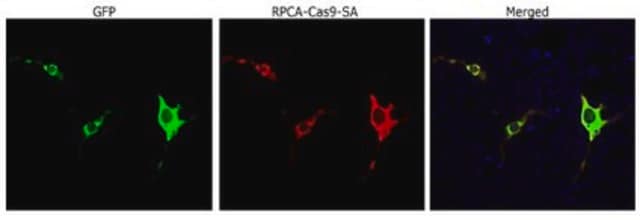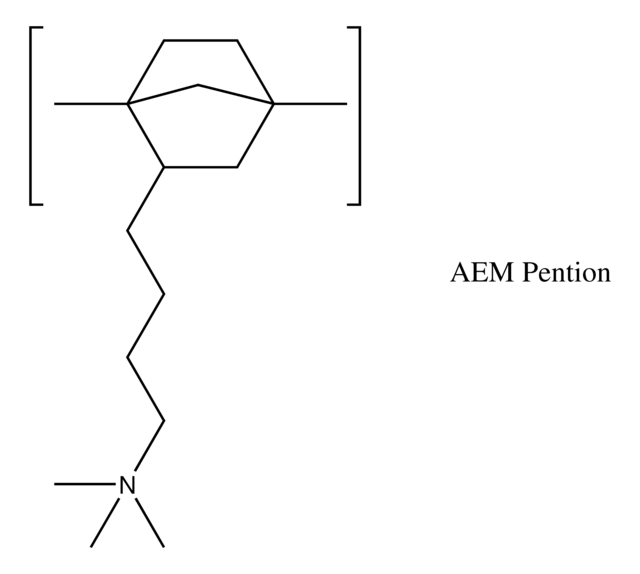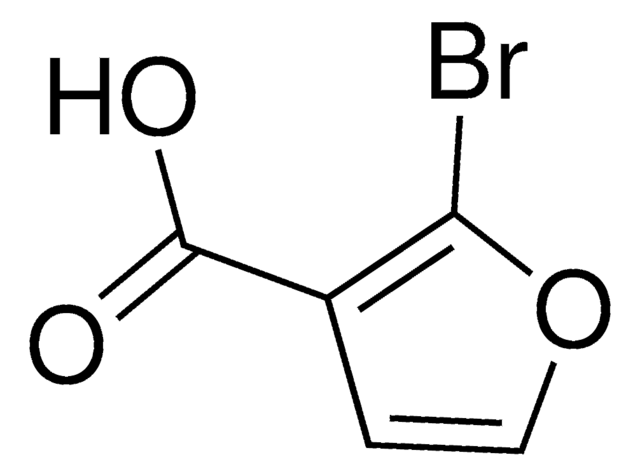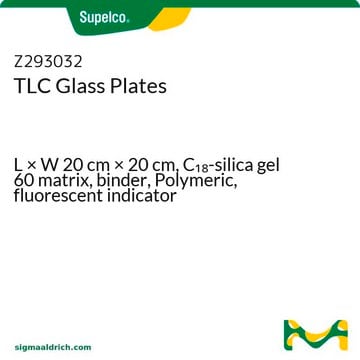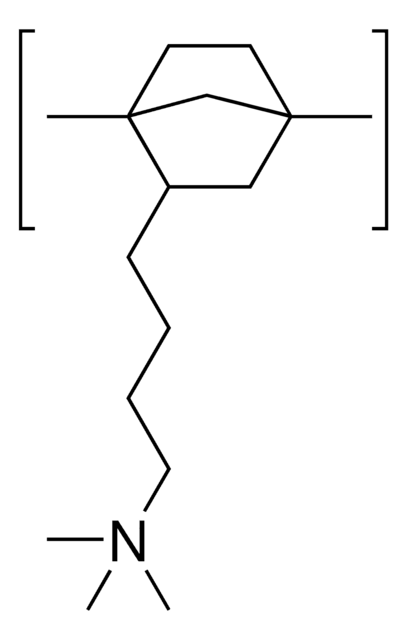おすすめの製品
結合体
unconjugated
品質水準
抗体製品の状態
purified immunoglobulin
抗体製品タイプ
primary antibodies
クローン
CL6251, monoclonal
製品種目
Prestige Antibodies® Powered by Atlas Antibodies
形状
buffered aqueous glycerol solution
化学種の反応性
human
テクニック
immunohistochemistry: 1:1000-1:2500
アイソタイプ
IgG1
Ensembl |ヒトアクセッション番号
UniProtアクセッション番号
輸送温度
wet ice
保管温度
−20°C
ターゲットの翻訳後修飾
unmodified
遺伝子情報
human ... TBX19(9095)
免疫原
T-box 19に対応する遺伝子組換えタンパク質
シーケンス
EVHASTPGAFLLGNPAVTSPPSVLSTQAPTSAGVEVLGEPSLTSIAVSTWTAVASHPFAGWGGPGAGGHHSPSSLDG
エピトープ
合成ペプチドオーバーラッピング法により決定されたペプチド配列VLGEPSLTSIAVSTW内に位置するエピトープに結合します。
シーケンス
EVHASTPGAFLLGNPAVTSPPSVLSTQAPTSAGVEVLGEPSLTSIAVSTWTAVASHPFAGWGGPGAGGHHSPSSLDG
エピトープ
合成ペプチドオーバーラッピング法により決定されたペプチド配列VLGEPSLTSIAVSTW内に位置するエピトープに結合します。
アプリケーション
Atlas Antibodiesが提供するすべてのPrestige抗体は、Human Protein Atlas(HPA)プロジェクト(www.proteinatlas.org)により開発および検証されているので、本業界で最も広範な特性評価により支援されています。 Human Protein Atlasプロジェクトは、次の3つのAtlasに細分することができます。 組織Atlas、がんAtlas、およびヒト細胞Atlas。Tissue and Cancer Atlas(組織とがんAtlas)プロジェクトをサポートするために生成された抗体は、何百もの正常組織と疾患組織に対して免疫組織化学的検査が行われています。また、Human Cell Atlas(ヒト細胞Atlas)プロジェクトの最近の取り組みを通じ、多くは、組織レベルだけでなく現在では細胞内レベルでもヒトプロテオームをマッピングする免疫蛍光により特徴が明らかにされています。これらの画像とこの膨大なデータセットのコレクションは、Image Galleryリンクをクリックすることにより、Human Protein Atlas(HPA)サイトでご覧になれます。私たちは、Prestige抗体®のプロトコルおよびその他の有用な情報も提供しています。
特徴および利点
Prestige抗体® は、高度に特徴づけられ、広く検証された抗体であり、各標的の利用可能なすべての特性データにはさらなる利点があります。各標的は、このページの上部にある製品名のすぐ下にリンクされたHuman Protein Atlasポータルを介してご利用できます。Prestige抗体® の特異性と他のタンパク質に対する低い交差反応性は、抗原領域の徹底的な選択、アフィニティー精製、および厳格な選択によるものです。Prestige対照抗原は、対応するすべてのPrestige抗体でご利用でき、リンク先で閲覧できます。
Prestige抗体はすべて、以下の方法で試験が行われます。
Prestige抗体はすべて、以下の方法で試験が行われます。
- 44の正常ヒト組織と最も一般的な癌タイプの20の組織のIHC組織アレイ
- 364のヒト組換えタンパク質フラグメントのタンパク質アレイ
関連事項
Corresponding Antigen APREST73328
物理的形状
PBS溶液(pH 7.2、40%グリセロール、0.02% アジ化ナトリウム含有)
法的情報
Prestige Antibodies is a registered trademark of Merck KGaA, Darmstadt, Germany
Not finding the right product?
Try our 製品選択ツール.
保管分類コード
10 - Combustible liquids
WGK
WGK 1
適用法令
試験研究用途を考慮した関連法令を主に挙げております。化学物質以外については、一部の情報のみ提供しています。 製品を安全かつ合法的に使用することは、使用者の義務です。最新情報により修正される場合があります。WEBの反映には時間を要することがあるため、適宜SDSをご参照ください。
Jan Code
AMAB91409-100UL:
AMAB91409-25UL:
試験成績書(COA)
製品のロット番号・バッチ番号を入力して、試験成績書(COA) を検索できます。ロット番号・バッチ番号は、製品ラベルに「Lot」または「Batch」に続いて記載されています。
Nèle F Lenders et al.
European journal of endocrinology, 184(6), 891-901 (2021-04-15)
The clinical utility and prognostic value of WHO 2017 lineage-based classification of pituitary tumours have not been assessed. This study aimed to (1) determine the clinical utility of transcription factor analysis for classification of pituitary tumours and (2) determine the
Beata Joanna Mossakowska et al.
Cancers, 14(22) (2022-11-27)
Protein deubiquitinases USP8 and USP48 are known driver genes in corticotroph pituitary neuroendocrine tumors (PitNETs). USP8 mutations have pleiotropic effects that include notable changes in genes' expression. Genes involved in cell cycle regulation were found differentially expressed in mutated and
Kiyohiko Sakata et al.
The Journal of clinical endocrinology and metabolism, 105(10) (2020-07-25)
Pituitary gangliocytomas (GCs) are rare neuronal tumors that present with endocrinological disorders, such as acromegaly, amenorrhea-galactorrhea syndrome, and Cushing's disease. Most pituitary GCs coexist with pituitary adenomas pathologically and are diagnosed as mixed gangliocytoma-adenomas. Herein, we report a case of
Mario Neou et al.
Cancer cell, 37(1), 123-134 (2019-12-31)
Pituitary neuroendocrine tumors (PitNETs) are common, with five main histological subtypes: lactotroph, somatotroph, and thyrotroph (POU1F1/PIT1 lineage); corticotroph (TBX19/TPIT lineage); and gonadotroph (NR5A1/SF1 lineage). We report a comprehensive pangenomic classification of PitNETs. PitNETs from POU1F1/PIT1 lineage showed an epigenetic signature
Kiyohiko Sakata et al.
Head and neck pathology, 15(4), 1289-1298 (2021-01-06)
Adenoid cystic carcinoma (ACC) is a tumor of the exocrine glands that originates primarily from the minor and major salivary glands, nasopharynx, and lacrimal glands. ACC grows slowly but is locally aggressive and prone to recurrence. It is uncommon for
ライフサイエンス、有機合成、材料科学、クロマトグラフィー、分析など、あらゆる分野の研究に経験のあるメンバーがおります。.
製品に関するお問い合わせはこちら(テクニカルサービス)

